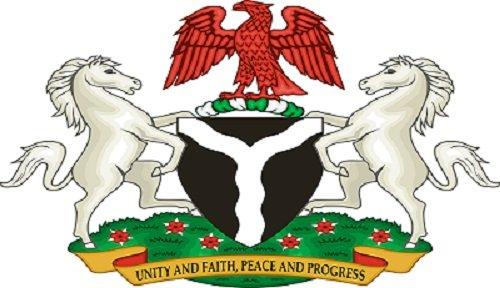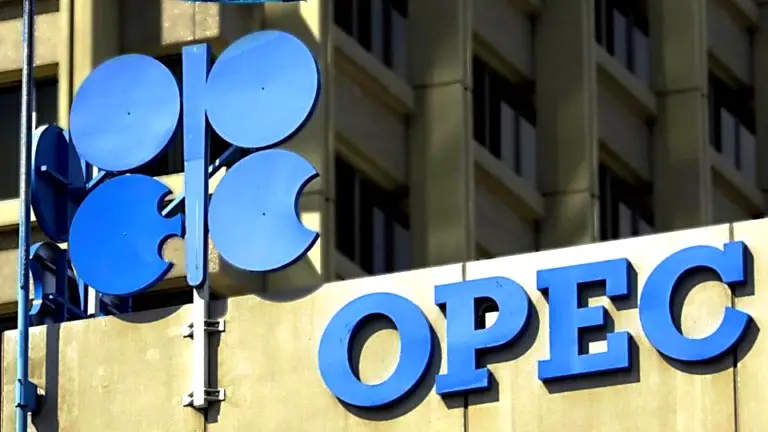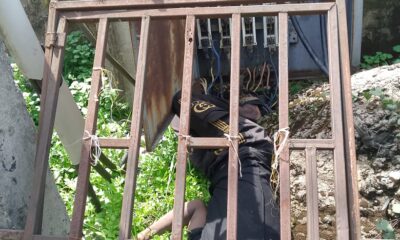Business
FG Bars Online Banks From Accessing Customers’ Photos, Contacts
Published
1 year agoon
By
Editor
Loan apps on Play Store will lose their ability to access their users’ contacts or photos from May 31, 2023.
This came as the Federal Government said it would enforce the latest policy by Google, saying the action was consistent with the Nigerian authorities’ move to curtail the invasion of customers’ privacy by loan app firms.
The Federal Government had in recent time taken major decisions aimed at tackling the violation of customers’ privacy by loan apps. Notably, the Federal Competition and Consumer Protection Commission had recently registered 170 loan apps out of the 200 operating in the country.
Google, in its April 2023 policy updates, said the new policy update would provide respite for loan app users in Nigeria and other places that have become accustomed to crude loan retrieval methods employed by a majority of loan apps.
READ ALSO: FG Approves 173 Loan Apps, Bars Illegal Online Banks
Google said, “Policy preview (effective May 31, 2023): This article previews changes included in our April 2023 policy updates.
“We are updating our personal loans policy to state that apps aiming to provide or facilitate personal loans may not access user contacts or photos.
“We are introducing additional requirements for personal loan apps targeting users in Pakistan. Personal loan apps in Pakistan must submit country-specific licensing documentation to prove their ability to provide or facilitate personal loans.”
This new policy is coming after the firm announced updates to its Developer Programme Policy, mandating digital money lenders in Nigeria, India, Indonesia, the Philippines, and Kenya to conform to regulatory rules or be taken down by January 31.
READ ALSO: FG Gets $800m World Bank Grant For Subsidy Palliatives
According to the firm, only digital money lenders that have adhered to and completed the Limited Interim Regulatory/Registration Framework and Guidelines for Digital Lending, 2022 (as may be amended from time to time) by the Federal Competition and Consumer Protection Commission and obtain a verifiable approval letter from the FCCPC will be allowed on Play Store in Nigeria.
Commenting on the new policy to The PUNCH, the Chief Executive Officer of the FCCPC, Babatunde Irukera, stated that it was a welcome development and shows that Google was institutionalising its regulatory policy.
He said, “It is a welcome development effort and is consistent with the position the FCCPC has taken and what we are enforcing.
“Google is now institutionalising our regulatory effort as a policy, which is very welcome. It is certainly important for proper regulatory oversight of the industry, and we commend Google for taking a position that is consistent with our position as regulators.”
READ ALSO: Brain Drain: UK Places Nigeria On Red List For Health Workers’ Recruitment
He added, “Recall that we took this position earlier and what has happened is that Google has looked at the regulatory landscape, looked at the regulatory priorities, and is supporting those priorities by institutionalizing those regulatory priorities and position.”
The FCCPC recently stated that it has approved 173 digital lending applications to operate in the country. 119 of these got full approvals while 54 got conditional approvals. This move became necessary after loan apps started harassing Nigerians by sending defaming messages to their contacts, and more.
The commission’s ‘Limited Interim Regulatory/Registration Framework and Guidelines for Digital Lending 2022’ is an attempt to regulate the digital lending space and make registration and approval a prerequisite for companies seeking to operate in the space.
Although, Google’s policy states that it does not “allow apps that promote personal loans that require repayment in full in 60 days or less from the date the loan is issued,” many loan apps in the country do not adhere to it, exposing many Nigerians to confidential data leak.
Speaking recently on Arise TV on how the recent registration drive of the commission will protect the privacy of Nigerians, Irukera stated, “We also want to restrain what kind of information they are able to pull off people’s phones and what they are able to do with that information, especially with respect to making contact with people on the contact list, and their loan recovery practices; the kind of language the times they call, what kind of things they say.”
You may like
Business
CBN Gives New Directive On Lending In Real Estate
Published
2 days agoon
April 17, 2024By
Editor
The Central Bank of Nigeria, CBN, has released a new regulatory directive to enhance lending to the real sector of the Nigerian economy.
The directive, issued on April 17, 2024, with reference number BSD/DIR/PUB/LAB/017/005 and signed by the Acting Director of Banking Supervision, Adetona Adedeji, signifies a notable shift in the bank’s policy towards a more contractionary approach.
In line with the new measures, the CBN has reduced the loan-to-deposit ratio by 15 percentage points, down to 50 per cent.
This move aligns with the CBN’s current monetary tightening policies and reflects the increase in the Cash Reserve ratio rate for banks.
READ ALSO: JUST IN: CBN Gov Sacks Eight Directors, 32 Others
The LDR is a metric used to evaluate a bank’s liquidity by comparing its total loans to its total deposits over the same period, expressed as a percentage.
An excessively high ratio may indicate insufficient liquidity to meet unexpected fund requirements.
All Deposit Money Banks are now mandated to adhere to this revised LDR.
The CBN has stated that average daily figures will be utilised to gauge compliance with this directive.
Furthermore, while DMBs are encouraged to maintain robust risk management practices in their lending activities, the CBN has committed to continuous monitoring of adherence and will adjust the LDR as necessary based on market developments.
READ ALSO: JUST IN: CBN Increases Interest Rate To 24.75%
Adedeji has called on all banks to acknowledge these modifications and adjust their operations accordingly. He emphasised that this regulatory adjustment is anticipated to significantly influence the banking sector and the wider Nigerian economy.
The circular read in part, “Following a shift in the Bank’s policy stance towards a more contractionary approach, it is crucial to revise the loan-to-deposit ratio policy to conform with the CBN’s ongoing monetary tightening.
“Consequently, the CBN has decided to decrease the LDR by 15 percentage points to 50 per cent, proportionate to the rise in the CRR rate for banks.
“All DMBs must maintain this level, and it is advised that average daily figures will still be applied for compliance assessment.
“While DMBs are urged to sustain strong risk management practices concerning their lending operations, the CBN will persist in monitoring compliance, reviewing market developments, and making necessary adjustments to the LDR. Please be guided accordingly.”

The Dangote Petroleum Refinery has announced a reduction in the price of Automotive Gas Oil, popularly called diesel, from N1,200/litre to N1,000/litre.
It announced this in a statement issued on Tuesday by its spokesperson, Nduka Chiejina.
The statement read in part, “In an unprecedented move, Dangote Petroleum Refinery has announced a further reduction of the price of diesel from N1,200 to N1,000/litre.
READ ALSO: NNPP Faction Suspends Kano Governor For Six Months
“While rolling out the products, the refinery supplied at a substantially reduced price of N1,200/litre three weeks ago, representing over 30 per cent reduction from the previous market price of about N1,600/litre.
“This significant reduction in the price of diesel at Dangote Petroleum Refinery is expected to positively affect all the spheres of the economy and ultimately reduce the high inflation rate in the country.”
According to The PUNCH report, last week, oil marketers called on the refinery to reduce its diesel price, as they urged managers of the facility to sell at N850/litre.
Details later…
Business
Nigeria’s Oil Production Drops Again, Now 1.23mbpd – OPEC
Published
1 week agoon
April 12, 2024By
Editor
Nigeria’s crude oil production witnessed the second consecutive monthly decline since the beginning of this year, as it dropped to 1.231 million barrels per day in March, the Organisation of Petroleum Exporting Countries stated on Thursday.
OPEC disclosed this in its latest Monthly Oil Market Report for April 2024, stating that crude oil production details which it got through direct communication from Nigeria showed that the country pumped less oil in March when compared to what was produced in February.
Data from the report indicated that Nigeria produced 1.322 million barrels per day of crude in February this year, but this dropped to 1.231mbpd in March, representing a plunge of 91mbpd.
The report further stated that the country had produced 1.427mbpd of crude in January, but this was not sustained in February as it dropped in that month, while the southward oil production continued in March.
OPEC data, however, showed that the country’s average crude oil production in the first quarter of 2024 was 1.327mbpd, higher than the 1.313mbpd average oil production in the fourth quarter of 2023.
Nigeria’s first quarter oil output in 2024 was also higher than the 1.201mbpd average production in the third quarter of last year.
READ ALSO: Oil Production Rises 26.57m Bpd In February — OPEC
Oil theft and pipeline vandalism have dealt severe blows on Nigeria’s oil production, limiting the country’s output and making it fall below the volume approved for Nigeria by OPEC.
The PUNCH reported on Wednesday that the Nigerian National Petroleum Company Limited recorded 155 oil theft incidents in one week.
The report that stated the company revealed that during the review period, 53 illegal pipeline connections and 36 illegal refineries were uncovered in the Niger Delta.
“Between March 30 and April 5, 2024, a total of 155 incidents were recorded across several locations in the Niger Delta region from various incident sources,” the firm stated.
In a summary of the incidents, NNPCL stated that it recorded 53 illegal connections, discovered 36 illegal refineries and 32 wooden fibre boats, identified 14 pipeline vandalism cases, eight vessel infractions and four oil spills, as well as made seven vehicle and one vessel arrests.
Some of the incident sources include the Nigeria Agip Oil Company, Tantita Security Services Ltd, NNPCL Command and Control Centre, Shell Petroleum Development Company, NNPCL 18 Operating Ltd, among others.
READ ALSO: Oil Drops Further After OPEC Delay With Asian Stocks Mixed
Providing additional details, the company said, “In the past week, 32 wooden boats conveying stolen crude and illegally refined products were seized and confiscated in Rivers and Delta states.
“On land, seven vehicles loaded with stolen crude were arrested in Imo, Delta and Rivers states. 53 illegal connections were uncovered between March 30 and April 5, 2024 in Bayelsa, Rivers and Delta states.
“14 cases of vandalism were also recorded in Rivers, Bayelsa and Delta states, while illegal storage sites where stolen crude and illegally refined products are kept were uncovered in Akwa Ibom, Bayelsa, Rivers and Delta states.”
The national oil company also stated there were clusters of illegal refineries in Abia State, as activities of oil thieves had devastated the effected environments in the state.
It said 36 clusters of the illegal refineries were discovered in the past week across several locations in Rivers and Abia states.
“Four cases of oil spills due to activities of vandals were recorded in the past week,” NNPCL stated, adding that in Rivers State, oil leaks from a wellhead is destroying aquatic lives.
NNPCL stated that 38 suspects were arrested during the week under review, stressing that the national oil company would not back down on the war against crude oil theft until the menace is eradicated.
READ ALSO: OPEC Cuts Nigeria’s Oil Output By 20.7% To 1.38 mb/d
Nigeria has been losing trillions of naira to crude oil theft, a development that has made some international oil companies to divest from onshore to deep offshore oil fields, while others have exited the country.
In November 2023, for instance, The PUNCH reported that the Federal Government revealed that more than N4.3tn worth of crude oil was stolen in 7,143 pipeline vandalism cases within a period of five years.
The report stated that the government disclosed this at the Nigeria International Pipeline Technology and Security Conference in Abuja, with the theme, ‘Bolstering Regulations, Technology and Security for Growth.’ The conference was organised by the Pipeline Professionals Association of Nigeria.
In a presentation at the conference by the Nigeria Extractive Industries Transparency Initiative, a Federal Government agency, the organisation revealed that oil theft and losses in Nigeria had become a national emergency.
The Executive Secretary, NEITI, Ogbonnaya Orji, said oil theft was an emergency that posed serious threat to oil exploration and exploitation with huge negative consequences on economic growth, business prospects and profit earnings by oil companies.
Providing data from the agency’s reports to back his claims, he said, “NEITI disclosed that in the last five years, 2017 to 2021, Nigeria recorded 7,143 cases of pipeline breakages and deliberate vandalism resulting in crude theft and product losses of 208.639 million barrels valued at $12.74m or N4.325tn.
“NEITI reports also disclosed that during the same period Nigeria spent N471.493bn to either repair or maintain pipelines.”
PUNCH

Police Storm Iranian Embassy In Paris After Man ‘In Suicide Vest’ Threatened To Blow Himself Up

VIDEO: Villagers Give Nigerian Soldiers Heroic Welcome After Successful Operation

Best Airports In Africa For 2024 Named, Nigeria Missing [Full List]

Woman S*xually Abuses Child, Films It In Viral Video

Jnr Pope: ‘That Guy No Suppose Knack Bell’ – Boat Captain Narrates His Own Side Of Story [VIDEO]

Junior Pope: ‘Our Boat Captain Hit Fisherman’s Canoe’ – Survived Actor Narrates How It Happened [VIDEO]
Trending

 Metro4 days ago
Metro4 days agoJunior Pope: Photos From Funeral Of Makeup Artiste, Abigail Frederick

 Metro3 days ago
Metro3 days agoTwo Soldiers Arrested For Allegedly Stealing Armoured Cables At Dangote Refinery In Lagos

 News5 days ago
News5 days agoVideo: Moment Pastor Enenche Sent Lady Away For Giving False Testimony On The Altar

 News4 days ago
News4 days agoBREAKING: APC Suspends National Chairman Ganduje

 Headline4 days ago
Headline4 days agoUS-based Nigerian Bodybuilder Dies 18 Days After Being Shot By Wife

 Headline2 days ago
Headline2 days agoB-I-Z-A-R-E: Woman Wheels Dead Uncle’s Corpse Into Bank To “Sign Off” Loan In Her Name [VIDEO]

 News3 days ago
News3 days agoBREAKING: FG Begins Disbursement Of N200bn Palliative Loans

 News4 days ago
News4 days agoPastor Enenche Under Fire For Accusing Church Member Of Fake Testimony

 Headline3 days ago
Headline3 days agoBill: MP Punched In The Face As Georgian Politicians Fight Dirty In Parliament [VIDEO]

 Metro3 days ago
Metro3 days agoTransformer Vandal Met Waterloo, Electrocuted In Benin




















